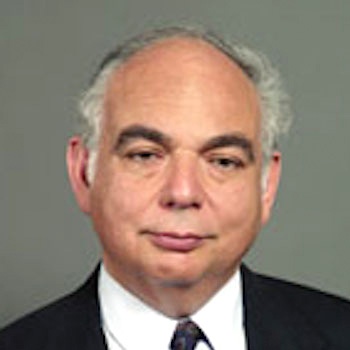Ernesto Cortés, Jr.
Ernesto Cortés, Jr.
Co-director, Industrial Areas Foundation (IAF)
Visiting Professor 1997-1999
Hosted by the Department of Urban Studies and Planning (DUSP)

Bio
Ernesto Cortés, Jr. is Co-director of the Industrial Areas Foundation (IAF) and Executive Director of its West / Southwest regional network. Founded in Chicago during the 1940s by his mentor, legendary community organizer Saul Alinsky, the IAF is a nonprofit institution that provides leadership training and civics education to poor and moderate-income people across the US and UK. Research interests: grassroots community organizing, public policy, political leadership and education, civic institutions, urban development and renewal.
Cortés earned his Bachelor's from Texas A&M University in 1963. He left post-graduate work in economics at the University of Texas- Austin to work first with Cesar Chavez and the farm worker's movement, and then with the U.S. Commission on Civil Rights. In 1971, he moved to Chicago to study at the Saul Alinsky Training Institute, which provides leadership training and civics education to poor and moderate-income people.
Returning to his native Texas in 1974 under Alinsky's Industrial Areas Foundation (IAF), Cortes founded its first affiliate there in his hometown of San Antonio. He formally launched this work in 1974, starting with the Communities Organized for Public Service (COPS), the nationally recognized church-based organization of San Antonio’s west and south side communities. This work has since expanded to include organizing projects across ten states--Texas, California, Nevada, Arizona, Louisiana, Nebraska, New Mexico, Iowa, Oklahoma and Mississippi. In the area of job training, MIT economist Paul Osterman has documented the results of living wage campaigns in Texas, finding they raised the wages of 10,000+ in the Valley plus those in Austin and San Antonio.
Cortés also envisioned and launched the Alliance Schools strategy – a much lauded initiative to engage communities of adults in public education. Identifying and training parent and community leaders to change the culture of their schools, the Alliance Schools have been successful in building a broad base of support for public education, both locally and statewide. The success of the Alliance schools in raising test scores by building a culture of collaboration has been well documented, most recently by the Annenberg Institute for School Reform.
The work of the West / Southwest Industrial Areas Foundation, pioneered by Cortés, has been written about extensively. He has been awarded honorary degrees from Princeton University, Rutgers University, Southern Methodist University, University of Houston, and University of St. Edwards in Austin. He is a member of the Carnegie Task Force on Learning in the Primary Grades, the Pew Forum for K-12 Education Reform and the Aspen Institute Domestic Strategy Group. In addition to being the recipient of the HJ Heinz Award in Public Policy and a 1984 MacArthur Genius Award, Cortés was a fellow at Harvard University's JFK School of Government.
MIT's Department of Urban Studies and Planning (DUSP) hosted Cortés for two years as an MLK Visiting Professor. He gave public lectures and taught a graduate course titled "Power Politics and the Revitalization of American Democracy Through Community-Based Institutions". During his first year as visiting faculty, Cortés was one of five to be honored with the 4th Heinz Family Foundation Award for his civic and academic achievements.
Video
Publications
Books on IAF Organizing:
After America’s Midlife Crisis. Michael Gecan, 2009. Massachusetts Institute of Technology.
Michael Gecan brings his deep knowledge of Chicago’s blighted neighborhoods, bloated bureaucracy, and venal political machine to bear on a thoroughgoing and nationwide critique.
Going Public: An Organizer’s Guide to Citizen Action. Michael Gecan, 2004. Anchor. This book by Northeast IAF Regional Director Michael Gecan describes the IAF’s organizing philosophy and the tools utilized in the IAF’s considerable successes in New York and the surrounding area.
Gathering Power: The Future of Progressive Politics in America.Paul Osterman, 2003. Beacon Press. MIT professor of management Paul Osterman argues in this book that the IAF’s strategies of institution-based organizing provide the outline for revitalizing progressive politics in America.
Roots for Radicals: Organizing for Power, Action, and Justice,Edward T. Chambers, 2003. Continuum. IAF National Director Edward Chambers outlines the IAF’s philosophy of relational organizing in this sequel to Alinsky’s writings.
Going Public: An Inside Story of Disrupting Politics as Usual. Michael Gecan, 2002. Beacon Press. An organizer for more than twenty years, Gecan illustrates the principles of organizing through a collection of stories from his experiences in Chicago and New York City. Very good introductory book.
On History of IAF:
Reveille for Radicals, Saul Alinsky, 1946. Vintage. The founder of the Industrial Areas Foundation, Saul Alinsky, wrote this book on his experiences organizing through the early 1940s.
Rules for Radicals, Saul Alinsky, 1971. Vintage. Near the end of his life, Alinsky wrote this classic guide outlining his rules for building power.
Let Them Call Me Rebel: Saul Alinsky, His Life and Legacy, Sanford H. Horwitt, 1992. Vintage. A comprehensive biography of Saul Alinsky.
On the Southwest IAF:
Better Together: Restoring the American Community, Robert Putnam, Lewis Feldstein, and Donald Cohen, 2004. In chapter 1, “Valley Interfaith: The Most Dangerous Thing We Do Is Talk to Our Neighbors,” the authors highlight the South Texas IAF organization as a model of civic engagement and an antidote to the decline of civic life in the United States.
Dry Bones Rattling: Community Building to Revitalize American Democracy, Mark Warren, 2001. An in-depth description of the Southwest IAF in Texas in which Professor Warren argues that a robust democracy requires connecting politics to community institutions.
Who Will Tell the People: The Betrayal of American Democracy,William Greider, 1992. In chapter 10, “Democratic Promise,” Greider describes the work of the IAF in Texas, offering the organization as a model for mediating the gulf between American politicians and the citizens they represent.
Cold Anger: A Story of Faith and Power in Politics, Mary Beth Rogers, 1990. Profile of Ernesto Cortes, the Southwest Director of the IAF. Features many stories of IAF organizing throughout Texas.